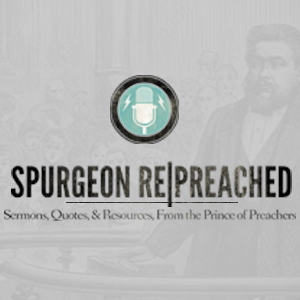
The term “Trinity” is not a Biblical term, and we are not using Biblical language when we define what is expressed by it as the doctrine that there is one only and true God, but in the unity of the Godhead there are three coeternal and coequal Persons, the same in substance but distinct in subsistence. A doctrine so defined can be spoken of as a Biblical doctrine only on the principle that the sense of Scripture is Scripture. And the definition of a Biblical doctrine in such un-Biblical language can be justified only on the principle that it is better to preserve the truth of Scripture than the words of Scripture. The doctrine of the Trinity lies in Scripture in solution; when it is crystallized from its solvent it does not cease to be Scriptural, but only comes into clearer view. Or, to speak without figure, the doctrine of the Trinity is given to us in Scripture, not in formulated definition, but in fragmentary allusions; when we assembled the disjecta membra into their organic unity, we are not passing from Scripture, but entering more thoroughly into the meaning of Scripture. We may state the doctrine in technical terms, supplied by philosophical reflection; but the doctrine stated is a genuinely Scriptural doctrine.
In point of fact, the doctrine of the Trinity is purely a revealed doctrine. That is to say, it embodies a truth which has never been discovered, and is indiscoverable, by natural reason. With all his searching, man has not been able to find out for himself the deepest things of God. Accordingly, ethnic thought has never attained a Trinitarian conception of God, nor does any ethnic religion present in its representations of the Divine Being any analogy to the doctrine of the Trinity.
Triads of divinities, no doubt, occur in nearly all polytheistic religions, formed under very various influences. Sometimes, as in the Egyptian triad of Osiris, Isis and Horus, it is the analogy of the human family with its father, mother and son which lies at their basis. Sometimes they are the effect of mere syncretism, three deities worshipped in different localities being brought together in the common worship of all. Sometimes, as in the Hindu triad of Brahma, Vishnu and Shiva, they represent the cyclic movement of a pantheistic evolution, and symbolize the three stages of Being, Becoming and Dissolution. Sometimes they are the result apparently of nothing more than an odd human tendency to think in threes, which has given the number three widespread standing as a sacred number (so H. Usener). It is no more than was to be anticipated, that one or another of these triads should now and again be pointed to as the replica (or even the original) of the Christian doctrine of the Trinity. Gladstone found the Trinity in the Homeric mythology, the trident of Poseidon being its symbol. Hegel very naturally found it in the Hindu Trimurti, which indeed is very like his pantheizing notion of what the Trinity is. Others have perceived it in the Buddhist Triratna (Söderblom); or (despite their crass dualism) in some speculations of Parseeism; or, more frequently, in the notional triad of Platonism (e.g., Knapp); while Jules Martin is quite sure that it is present in Philo’s neo-Stoical doctrine of the “powers,” especially when applied to the explanation of Abraham’s three visitors. Of late years, eyes have been turned rather to Babylonia; and H. Zimmern finds a possible forerunner of the Trinity in a Father, Son, and Intercessor, which he discovers in its mythology. It should be needless to say that none of these triads has the slightest resemblance to the Christian doctrine of the Trinity. The Christian doctrine of the Trinity embodies much more than the notion of “threeness,” and beyond their “threeness” these triads have nothing in common with it.
~B.B. Warfield~
The Works of Benjamin B. Warfield, Volume 2: Biblical Doctrines (Edinburg, Scotland; Banner of Truth; 1988) p. 131-135.
Books by B.B. Warfield
Kindle Books
Other Warfield Quotes at The Old Guys
Tags: B.B. Warfield, biblical doctrines












